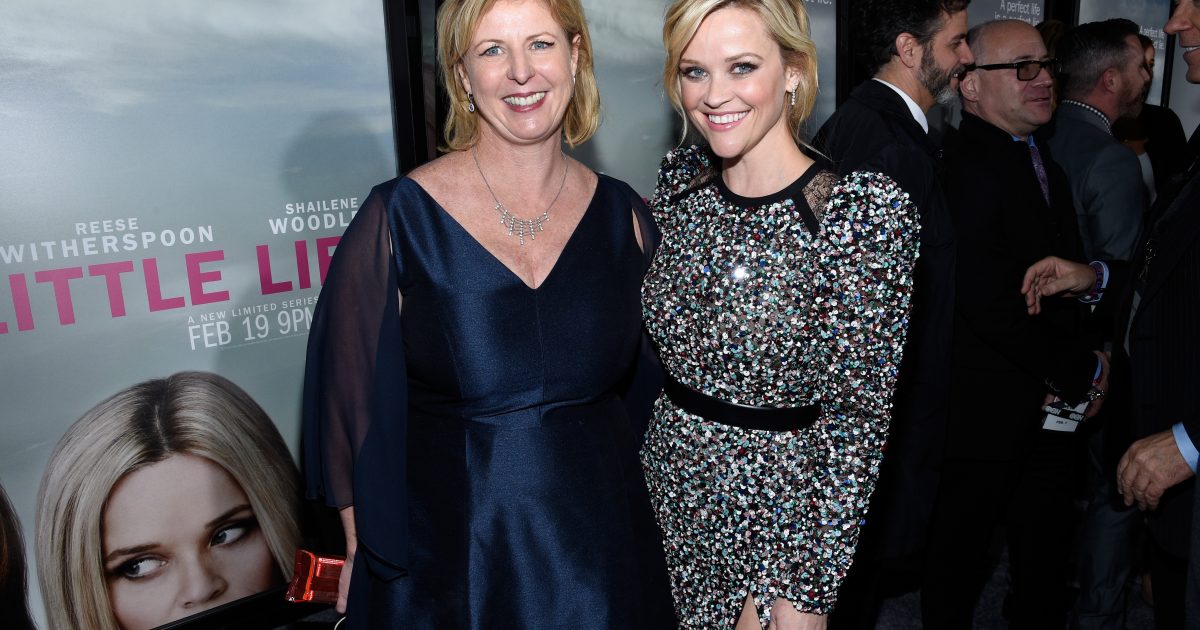Author Battles Breast Cancer & Survivor Amy Robach Praises New Book
- GMA’s Amy Robach praises Big Little Lies author Liane Moriarty’s newest novel, Apples Never Fall, which the breast cancer survivor is currently listening to on audiobook.
- Moriarty fought breast cancer during the pandemic; it was caught from a routine screening. Amy Robach was diagnosed with stage 2 invasive breast cancer in 2013.
- Breast cancer is typically detected via mammogram, which looks for lumps in the breast tissue and signs of cancer.
In a recent post to Instagram, Robach praises the author and survivor, saying, “How cool is this?? Listening to my new audio book "Apples Never Fall" while running this morning only to find out the author Liane Moriarty is on @abcgma3 today AND is promoting my passion of breast cancer research and early detection!”
Read MoreView this post on InstagramRobach continues to say, “I had no idea we were sisters, she was diagnosed with breast cancer just after finalizing her manuscript for Apples Never Fall – what a full circle morning and what an amazing book! Can't wait to learn more about her 💖 #breastcancerawareness #kismet #thrivers #sunriserun”
Liane & Amy’s Cancer Battles
Liane, who lives with her family in Sydney in her native Australia, was diagnosed with cancer right after she delivered the manuscript for Apples Never Fall. She says in an interview on Good Morning America, “It was a routine mammogram, and [my cancer] was picked up early.” Moriarty, whose books have been adapted multiple times for the screen, says that the fact that her books provide a distraction for people in the hospital fills her with joy. She calls the screen adaptions of her work “surreal and exciting.”
Amy Robach was diagnosed with stage 2 invasive breast cancer in 2013. She had no history of cancer in her family, and she was relatively young to be fighting this disease; Robach was 40 at the time of her diagnosis.
It was thanks to an on-air mammogram for a Good Morning America awareness campaign that revealed tumors in her breast. Following the tumor detection, Robach immediately started treatment. She had a bilateral mastectomy and six months of chemotherapy.
A mastectomy is the surgical removal of the breast. It may be the full or partial removal of one or both breasts as a way to remove cancer from that region of the body. Some women have preventative mastectomies if they're at a high risk of being diagnosed. For instance, if breast cancer runs in their family, or if they carry the BRCA1 or BRCA2 gene mutation.
When Should You Consider a Mastectomy?
Getting a Mammogram
Breast cancer is typically detected via mammogram, which looks for lumps in the breast tissue and signs of cancer. Women with an average risk of breast cancer, who have no family history of the disease and no incidence of the BRCA1 or BRCA2 gene mutation, should get annual mammograms between the ages of 45 to 54. Women with a higher risk of the disease should begin screening earlier.
Related: When You're Getting a Mammogram, Ask About Dense Breasts
In a previous interview, Dr. Connie Lehman, chief of the Breast Imaging Division at Massachusetts General Hospital, emphasizes the importance of screening. She says, "If you haven't gone through menopause yet, I think it's very important that you have a mammogram every year. We know that cancers grow more rapidly in our younger patients, and having that annual mammogram can be lifesaving."
"After menopause, it may be perfectly acceptable to reduce that frequency to every two years," says Dr. Lehman. "But what I'm most concerned about is the women who haven't been in for a mammogram for two, three, or four years, those women that have never had a mammogram. We all agree regular screening mammography saves lives."
When Should I Get a Mammogram?
Learn more about SurvivorNet's rigorous medical review process.

